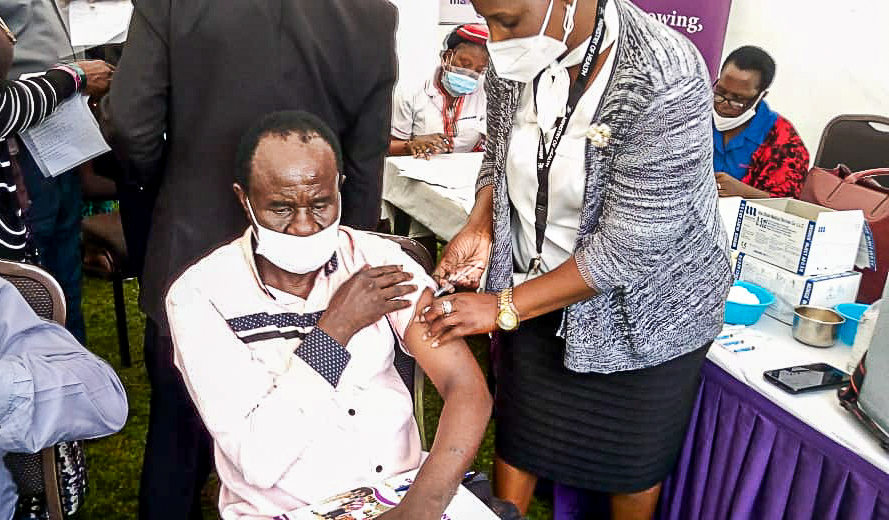Today the Anglican Alliance and the Anglican Health and Community Network call on G7 governments to convene urgently to address the issue of global vaccine inequity, including the hoarding and wastage of surplus Covid vaccines. At the Anglican Alliance we witness the appalling inequality which sees some richer nations getting strong vaccine coverage, while other, lower-income countries are still facing terrible shortages. As a global Communion we see the tragic impact, with people suffering and dying due to lack of vaccines. As a human family we must share and work together. The health and lives of millions are at risk and the whole world will be affected if new variants of the virus emerge. We can only end this pandemic and recover if we do so together.
The statement from the Anglican Health & Community Network and the Anglican Alliance is as follows:
“We ask the governments of the G7 countries to address global issues of hoarding and wastage of Covid vaccines by convening an emergency meeting of the G7.
Globally, over 5.5 billion vaccine doses have now been administered, but 80% have been administered in high-and upper-middle income countries. Meanwhile, Africa’s vaccination coverage is at 2%.
Even as booster jabs are given and over 12s vaccinated, rich nations are still on track to amass an excess of 1 billion vaccines by the end of the year. This excess will only increase in 2022 as global vaccine manufacturing increases. Rich nations must not hoard the surpluses amassed – but must share.
The lives and health of millions around the world are at risk, alongside the threat of new variants emerging globally.
Vaccines have ‘use by’ dates. If not put into people’s arms, significant parts of the excess being generated will need to be destroyed. It is a matter of extreme concern that if not shared, hundreds of thousands, if not millions, of vaccines that have been purchased by rich nations will go to waste.
We recognise the support of the G7 governments for the Access to COVID-19 Tools Accelerator (ACT-A) and the commitments made at the G7 summit in June 2021 to make available additional doses. High income countries have promised to donate more than 1 billion doses, but less than 15% of these have so far materialised.
We call on all G7 governments and others to fulfil their promises and commit fully to global vaccine equity. National vaccine surpluses must be equitably and effectively shared, with waste avoided and lives saved.
We are one human family. We can and must work together to end this pandemic, leaving no one behind.”
Co-Convenors, Anglican Health & Community Network:
- Rt Revd Michael Beasley, Bishop of Hertford, Church of England
- Dr Janice Tsang, Specialist in Medical Oncology, Hong Kong
- Rt Revd Luke Pato, Bishop of Namibia, Church of Southern Africa
Revd Canon Rachel Carnegie, Executive Director, Anglican Alliance
The Anglican Alliance Covid-19 response
Since early 2020 the Anglican Alliance has been working to support the Communion’s response to Covid-19, including:
- Convening a Global Covid-19 Task Force to guide the response and identify emerging issues.
- Over 25 regional and global consultations to share learning on church responses to the pandemic, including webinars with WHO specialists and the Anglican Health & Community Network.
- Thematic consultations on key issues – e.g. Covid-19 & migration, domestic abuse and Covid-19 with the Director for Gender Justice
- Sharing stories of hope – e.g. Web story of our recent Africa consultation jointly convened with CAPA.
- Building a Covid-19 resource hub in four languages to provide technical, spiritual & pastoral resources: The online Covid-19 resource hub has two parts: the facts of COVID-19 and how the churches are responding, including our new Bible study series – Faith in the time of Covid-19.
- Helping churches to promote vaccine uptake, tackling vaccine hesitancy and countering fake news.
- Building joint advocacy on global vaccine equity.

